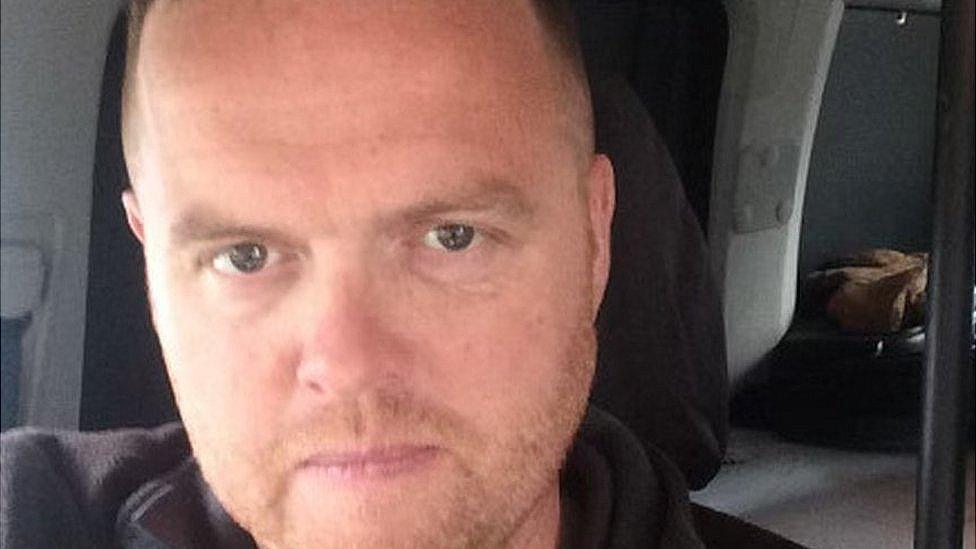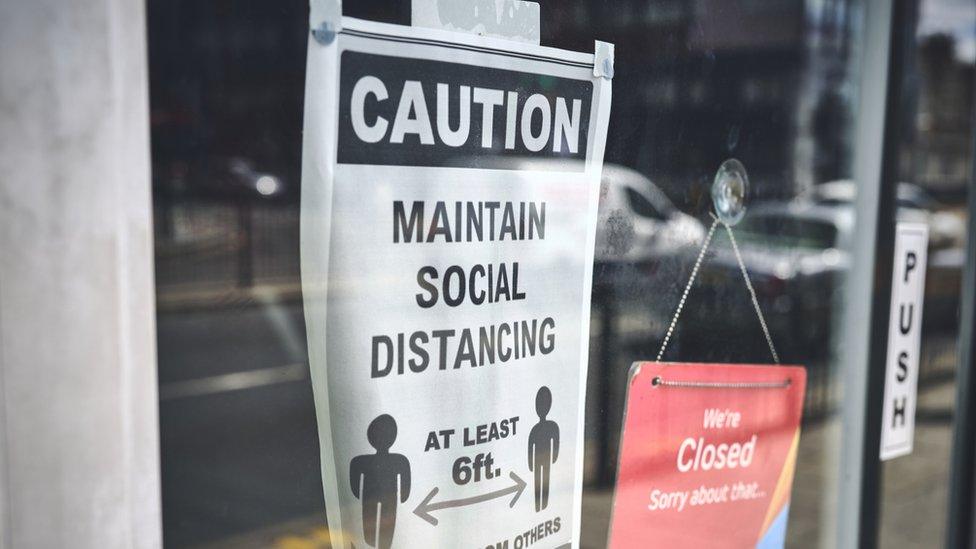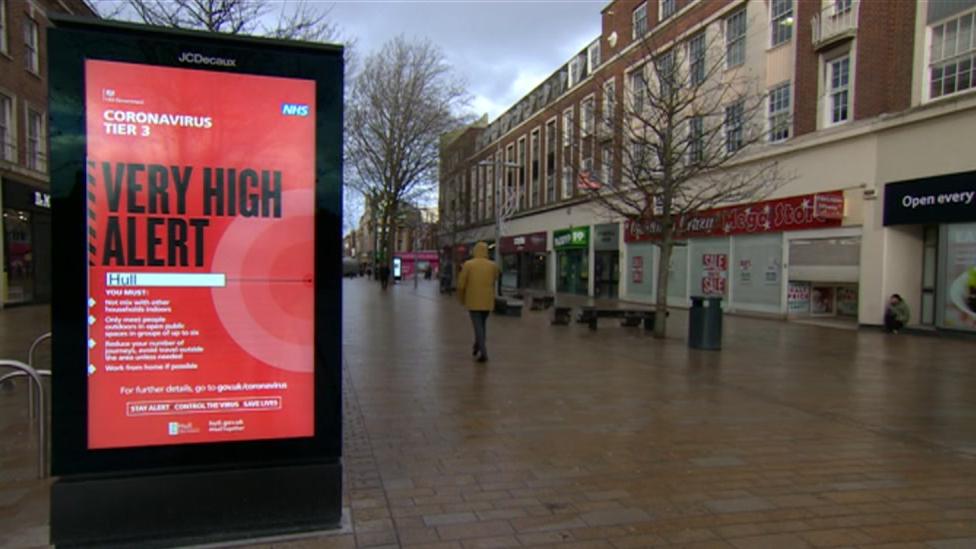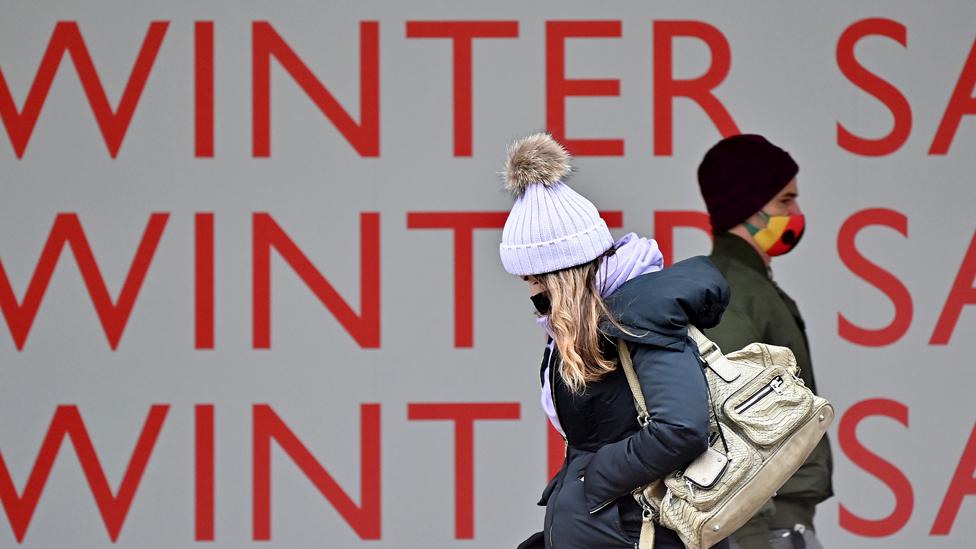Covid: 'I’m one of those people who’s been left out'
- Published
- comments

Small business owner Jon Wilding is facing a dilemma: his livelihood is on hold because of Covid restrictions and he has a big tax bill to settle.
If his company supplying marquees to outdoor events goes bust, the taxman will get paid, but his reputation as a businessman will be ruined forever.
"If I shut the business down, I then become director of a business that's gone bankrupt, at which stage getting loans in the future becomes nigh-on impossible," he told the BBC.
"I feel like I'm one of those people who's been left out. We don't need a lot to keep going," said Mr Wilding, of Cannock in the West Midlands.
"The government say their support system is the best in the world, we've done furlough, this that and whatever, but it's not getting to all the people that need it."
Apart from the Bounce Back Loan scheme, his two-person business has received no government assistance.
His colleague was furloughed in March last year, but because Mr Wilding is the director, he is not allowed to furlough himself.
The Federation of Small Businesses (FSB) is particularly concerned about people like Mr Wilding.
It says directors of small companies, who pay themselves in dividends rather than drawing a salary, are not receiving any help from the government.
The FSB says somewhere between 700,000 and 1.1 million people fall into this category.
It has put forward ideas to help some of those firms, which it hopes ministers will adopt.
The FSB's proposed Directors Income Support Scheme would pay them grants of up to £7,500 to cover three months of lost trading profits. It would be limited to those who earn less than £50,000 a year.
"Company directors, the newly self-employed, those in supply chains and those without commercial premises are still being left out in the cold," said FSB national chairman Mike Cherry.
Bankruptcy fears
Without further government help to cope with the effects of the pandemic, a record 250,000 small businesses could be lost in the next 12 months, the FSB said.
"The development of business support measures has not kept pace with intensifying restrictions," Mr Cherry added.
"As a result, we risk losing hundreds of thousands of great, ultimately viable small businesses this year, at huge cost to local communities and individual livelihoods."

The Federation of Small Businesses said the government had met the latest national lockdown "with a whimper"
The FSB based its prediction on a survey of 1,400 small firms, 5% of which said they expected to close this year.
If those figures were replicated across the country, some 250,000 of the UK's 5.9 million small firms could disappear, it said.
Mr Cherry said the government had met the latest national lockdown "with a whimper" and called for help that went beyond the retail, leisure and hospitality businesses.
The FSB said it had submitted its support scheme proposals to the Treasury and was expecting a decision this month.
The Treasury said nothing was planned at present, but added: "Our support schemes are designed to get help to those who need it most whilst protecting the taxpayer from fraud, but of course we keep everything under review and are always open to further ideas."

LOOK-UP TOOL: How many cases in your area?
YOUR QUESTIONS: We answer your queries
GLOBAL SPREAD: How many worldwide cases are there?
THE R NUMBER: What it means and why it matters
TEST AND TRACE: How does it work?

Related topics
- Published6 January 2021

- Published5 January 2021

- Published5 January 2021
